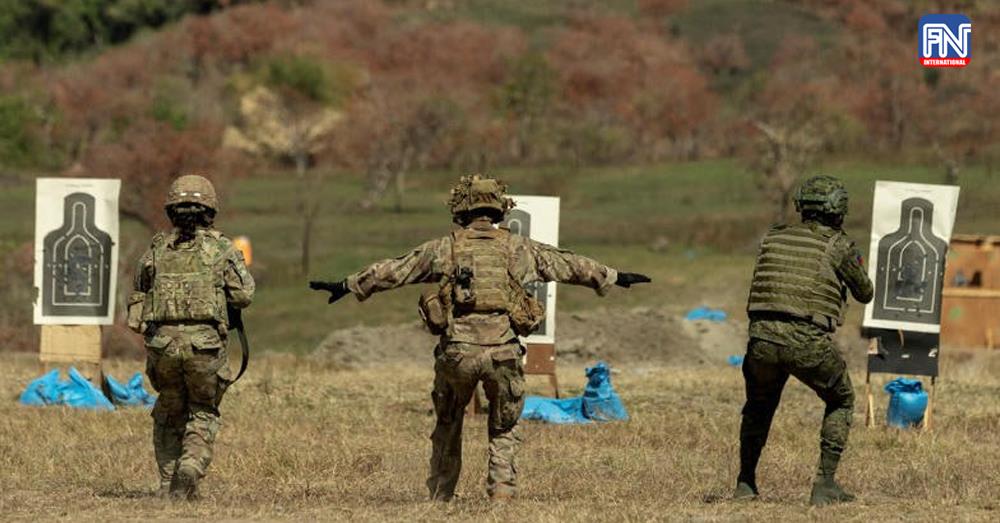MANILA, April 11 (AFP) - The Philippines and the United States launched their largest-ever joint military exercises on Tuesday, as the longstanding allies seek to counter growing Chinese assertiveness in the region.
Nearly 18,000 troops are taking part in the annual exercises dubbed Balikatan, or "shoulder to shoulder" in Filipino, which for the first time will include a live-fire drill in the South China Sea, which Beijing claims almost entirely.
The drills follow Monday's conclusion of a three-day Chinese military operation that simulated targeted strikes and a blockade of self-ruled, democratic Taiwan, which Beijing considers part of its territory.
Balikatan will include military helicopters landing on a Philippine island off the northern tip of the main island of Luzon, nearly 300 kilometres (180 miles) from Taiwan.
It will be the first time the exercises have been held under President Ferdinand Marcos, who has sought to strengthen ties with the United States after his predecessor Rodrigo Duterte trashed the alliance.
"Through this exercise, the Philippine and US forces will sharpen our inter-operability, increase our proficiency and complement our capabilities through collaboration, ensuring we are prepared to respond to real-world challenges together," First US Marine Aircraft Wing commander Major-General Eric Austin said at Tuesday's opening ceremony in Manila.
In recent months, Manila and Washington have agreed to restart joint maritime patrols in the South China Sea and struck a deal to expand the US forces' footprint in the Philippines, which has infuriated China.
US troops will be allowed to use an additional four Philippine military bases under the pact, including a naval base not far from Taiwan.
The Philippines' proximity to the island could potentially make it a key US partner in the event of a Chinese invasion.
News of the expanded base access prompted China to accuse the United States of "endangering regional peace and stability".
"Countries in this part of the world must uphold strategic independence and firmly resist the Cold-War mentality and bloc confrontation," China's ambassador to Manila, Huang Xilian, said last week.
